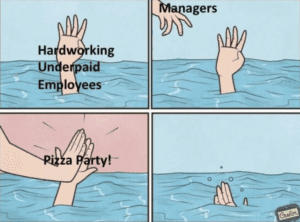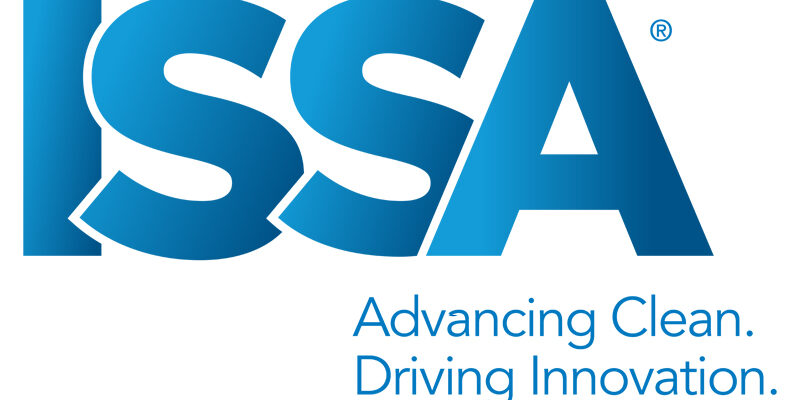Leadership Tips: Pizza Parties are for ‘Dinosaurs’

By Samantha Hager
I was recently watching one of my favorite comfort shows—”The Office”—when I realized that the very thing they were joking about in the show at that moment is something many companies still do to this very day. That’s when I began to ask myself not just how long ago this particular episode aired but also, why were companies still doing pizza parties and company field trips when they are so widely recognized as a joke and a waste of employee time?
That’s when I came to the ultimate conclusion: Pizza parties are for dinosaurs. And thus begins this comprehensive look into the pizza party problem for employee retention and satisfaction in the modern workforce.
Why pizza parties have “˜gone extinct’
Although I had a hunch that pizza parties were not just a joke on TV but rather considered a joke by the average employee as well, I know that assumptions hardly help companies when looking to make effective and calculated changes for the better. That’s why I chose to do the research to back my hypothesis as well:
- In December of 2022, Some 48% of employers offered their workers pizza parties in lieu of bonuses.
- 67% of employees said they would quit or consider quitting if they didn’t receive a holiday bonus this year and instead got a pizza party.
- According to Harvard Business Review, “When organizations make real gains”¦they’re going beyond what engagement scores are telling them to do in the moment”¦ creating a place where people want, not just need, to work each day.”
- Organizations that score in the top 25% on employee experience report nearly three times the return on assets and double the return on sales.
- According to the HR Digest, employees care far more about tangible incentives, raises, and bonuses than pizza parties and company outings.
- Gartner found that “Organizations whose employees are largely satisfied with their experience are 48% more likely to meet organizational customer satisfaction goals, 89% more likely to meet organizational innovation goals, and 56% more likely to meet organizational reputation goals.”
- In 2015, Forbes called the view that Google gave its employees free food “pessimistic.”
- A recent survey found employee recognition was most important to 37% of employees.
- Business productivity increases by 31% when employees are happy.
- 47% of employees find that new growth opportunities are a better way to reward them for their achievements.
From “Christmas Vacation’s” Jelly of the Month Club trope, all the way to “Office Space’s” disrespectful boss that never recognized his team’s hard work, the concept of poor employee incentives in pop culture has been a topic for even longer than “The Office” — and remains to this day!
So, what is the solution? Well, it’s simple:
Cleaning and restoration companies need to modernize their incentives and focus on employee experience, satisfaction, and retention to be successful in 2023 and beyond.
Having said this, let’s now take a closer look at some modern incentives that are better than “˜cheesy’ pizza parties and company “˜beach days’ every time.
How to incentivize hard work in a modern way
Although pizza parties may not be viable, there are still several ways for companies to recognize employees without outright raises, bonuses, or promotions (however, a well-defined career path that includes these things is highly important for a modern workforce).
Some of the best incentives for a forward-thinking company looking to appeal to the modern worker include:
-
Learning and development programs
Many companies offer learning and development programs to help fast-track their best team members and clearly define their career paths. With so many companies losing employees due to a lack of upwards growth or defined roles for advancement, this is one method to show your employees you care and to incentivize hard work.
-
Gamification
Gamification is “the application of typical elements of game playing (e.g. point scoring, competition with others, rules of play) to other areas of activity.” When it comes to incentives, gamification is one way for company leaders to encourage healthy competitiveness amongst coworkers and to offer incentives with proven value. In fact, employee happiness can be increased by 89% with a gamified workplace.
-
Profit sharing
According to the Edward Lowe Foundation, “When employees are rewarded based on their contributions to the company’s success, employees feel like owners. As owners, employees have more incentive to increase the company’s profitability.” Plus, studies show that profit sharing boosts employee productivity and satisfaction.
-
Additional time off
Another incentive that may cost you upfront but lead to massive returns is offering additional time off to employees that perform well regularly. This gives your team control of their work/life balance, helps them to feel truly respected, and improves their self-care and mental health leading to more productivity and satisfaction in the workplace.
-
Purchasing new equipment
Although this may not seem like an incentive your team will truly care about, something as simple as new keyboards, new standing desks, desk treadmills, office plants, equipment to make their cleaning or restoration work easier, new trucks, or even just new uniforms that are more comfortable can truly make a difference. When your team sees you working to make their daily lives more enjoyable and their jobs easier on your own dime, it doesn’t matter if the money isn’t in their own pockets at the end of the day.
-
Family-inclusive events
While company beach days and pizza parties with the team alone are not appreciated as much anymore, having these kinds of events for your employees and their families is a different story. Something as simple as a movie night, park day, a day at the zoo, or even a day in the office that’s open to the family can be a great way to show your team that you care about them on a more personal level — and are willing to pay for their families to have fun too!
-
Flexible work days
Another incentive that you can give to your employees is the ability to work at home on particular days. This is mostly related to your office staff and sales team but can be a great way to incentivize them to work harder on customer acquisition, satisfaction, and retention in the future.
-
Gift cards and coupons of good value
While a “˜Jelly of the Month Club’ coupon isn’t a great option, you can definitely give your employees gift cards and coupons — if they’re worth it. To do this, try asking your team what they personally would like to have, offer gift cards that tie their families or significant others into the mix, and always ask yourself before giving them whether or not you’d honestly want it as an incentive for your hard work and dedication.
-
Participate in their outside interests for a day
As you begin to build your relationships with your team members, take the time to get to know some of their outside interests and hobbies. For instance, if your team member likes to play frisbee golf and loves a certain band, keep that in mind. Then, when incentives are needed for them, do something related to these interests. You can do a frisbee golf outing with them for lunch, buy them a ticket to an upcoming show, or do something similar to show you care on a truly considerate level.
-
Do something personal and truly special
Lastly, when really wanting to reward your team members, try doing something truly personal and special for them. For instance, if they love to cook in their spare time, get them a ticket to a cooking class. Or, if they love a specific sports team, find an autographed jersey or poster online for them. Any of these very special incentives can help you to stand apart from your competitors, show your team how much you actually care and listen to them, and improve your profits, brand image, team satisfaction, and customer satisfaction alike.
On top of all of this, one of the biggest benefits of offering these incentives comes in the form of employee acquisition. Finding good new employees is a major pain but, with great workplace dynamics, incentives that make your team feel respected and satisfied, and employees willing to recommend your company to their inner circle when they are looking for jobs, the tedious process becomes a cakewalk.
In the end, while pizza parties might not be the answer any longer, you can still reward your team in ways that make them feel respected and special without breaking the bank. So, why not try it out on your next employee’s win?
After all, as Michael Scott once said:














